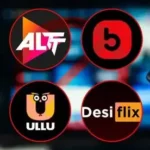Okay, let’s be real. When I first heard about Eid-ul-Adha, it sounded… complicated. Like, a bunch of religious rules and, honestly, a lot of meat. Growing up, my family celebrated Christmas with big gatherings and shiny presents. Eid felt like something… different. Something my Muslim friends talked about with a kind of quiet reverence, a feeling I didn’t quite grasp. Now, having spent a fair chunk of my life getting to know people from all walks of life, including my amazing Muslim neighbors and friends, I understand that Eid al-Adha is so much more than just a feast. It’s a deeply emotional and meaningful celebration rooted in sacrifice, faith, and community. I’ve been fortunate enough to experience it firsthand, and more importantly, to really *understand* why it matters. I want to share what I’ve learned, not just as a curious observer, but as someone who’s begun to truly appreciate the heart of this beautiful tradition.
I’m not a religious scholar – far from it! But I’ve spent years talking to people, learning about their customs and beliefs, and trying to build genuine connections. Through those conversations, and through observing my friends’ families celebrate Eid with such warmth and joy, I’ve gained a pretty solid grasp of what this holiday really means. And I want to break it down for you in a way that feels real, not like a textbook.
**The Story Behind the Sacrifice: Beyond the Lamb**
At its core, Eid al-Adha, often called the “Festival of Sacrifice,” revolves around the Prophet Ibrahim (Abraham in the Bible) and his unwavering devotion to God. The story, as I’ve heard it told repeatedly, is this: God told Ibrahim to sacrifice his beloved son, Ishmael (Ismail in the Quran), as a test of his faith. Ibrahim, willing to obey God’s command, prepared to carry out the sacrifice. However, God intervened and sent an angel in the form of a ram to be sacrificed in Ibrahim’s place.
Now, this isn’t just a cool bedtime story. It’s a foundational narrative for Muslims around the world, showcasing the ultimate act of submission and trust in God. But the sacrifice isn’t just about Ibrahim’s willingness; it’s about a universal message of giving, generosity, and compassion. It’s a reminder that sometimes, the biggest sacrifices we can make – of our time, our resources, or even our comfort – are the most rewarding.
**Bakrid Mubarak: The Greetings That Speak Volumes**
You’ll often hear “Eid Mubarak” used during Eid al-Adha – and Bakrid Mubarak too, which is a particularly regional term for the same celebration. “Eid Mubarak” literally translates to “Blessed Eid.” It’s more than just saying “Happy Eid.” It’s a wish for a blessed and joyous occasion, filled with peace, prosperity, and gratitude. It’s a sentiment expressed with genuine warmth and connection. When someone says “Eid Mubarak” to you, they’re acknowledging your belonging to the Muslim community and wishing you well. I’ve noticed that the way people *say* it – the tone, the sincerity – can really tell you a lot about their relationship with the person they’re addressing. It’s a small gesture that carries a huge amount of meaning. It’s not just a polite addition to a greeting; it’s an expression of shared faith and goodwill.
**More Than Just a Feast: The Real Meaning of Eid**
Let’s be honest, food plays a *huge* role in Eid celebrations. There’s usually a massive feast – often involving lots of meat, sweets, and family recipes passed down through generations. In my own family, it’s like a competitive cooking challenge! My aunt makes the best biryani, my grandma always has a mountain of dates, and my uncle insists on grilling the perfect lamb chops. But for Muslims, the food is less about the indulgence itself and more about sharing abundance.
The practice of sacrificing an animal – usually a goat, sheep, or cow – is central to Eid al-Adha. This sacrifice isn’t about offering a gift to God; it’s about sharing that sacrifice with others. A portion of the meat is given to the poor and needy, reflecting Ibrahim’s spirit of generosity. I’ve volunteered at local mosques during Eid, helping to distribute the meat to those less fortunate. It’s incredibly humbling to see the gratitude in people’s eyes, to understand that this simple act of giving is a direct link to a tradition that stretches back centuries.
I remember one particular year, after helping with the distribution, a young boy approached me, clutching a small, worn-out toy. He looked up at me and said, with a sincerity that made my heart ache, “Thank you for helping. This is all I have.” It wasn’t about the meat itself; it was about the act of kindness, the recognition that someone cared enough to share their blessings. That’s a moment I’ll never forget.
**Beyond the Meat: Acts of Kindness and Community**
Eid al-Adha isn’t just about the sacrifice and the feast. It’s also a time for strengthening community bonds, expressing gratitude, and engaging in acts of kindness. Families visit each other, exchange gifts, and spend time together, reinforcing the importance of kinship and support. It’s a time to forgive, to reconcile, and to reaffirm relationships.
I’ve witnessed this firsthand in my neighborhood. My Muslim neighbors have always been incredibly welcoming, inviting us over for Eid meals and celebrations. They’ve taught me about the importance of helping others, of being a good neighbor, and of celebrating together. During Eid, you’ll often see people volunteering at shelters, donating to charities, and simply being more mindful of those around them. It’s a celebration of empathy and compassion, reflecting the values at the heart of the holiday. It’s a truly beautiful thing to see, and something I’ve really started to value in my own life – the importance of connection and service.
**Different Traditions, Shared Values**
It’s important to acknowledge that Eid al-Adha is celebrated differently across the Muslim world. Traditions and customs vary from country to country, and even from family to family. Some families might have elaborate prayers and rituals, while others might focus on simpler gatherings and family time. The clothing people wear – often brightly colored and festive – also differs regionally. I recently visited a family in Pakistan for Eid, and the sheer volume of decorations and the joyous atmosphere were incredible. Then, a few weeks later, I spent Eid in the United States, where the celebrations were much more low-key, focused on intimate family meals.
Despite these differences, there’s a common thread that runs through all Eid celebrations: a profound sense of gratitude, faith, and community. It’s a time for reflection, for forgiveness, and for looking forward to the future with hope.
**My Own Journey of Understanding**
I have to be honest, when I first heard about Eid, I felt a bit… out of the loop. Like I was missing something important. The initial conversations were often vague, and I struggled to grasp the depth of its significance. But as I got to know my Muslim friends and neighbors, and as I took the time to learn about their traditions, I started to see beyond the surface.
I realized that Eid isn’t just a religious holiday; it’s a way of life – a way of living with compassion, generosity, and a deep connection to faith and community. It’s a reminder that even in the face of hardship, there’s always hope, always the possibility of a better future.
One of the most impactful things I’ve learned is that Eid is a time for remembering those who have passed on. It’s a way to honor their memory and to continue their legacy of kindness and compassion. I’ve seen families gather to share stories about loved ones who are no longer with them, creating a sense of continuity and remembrance.
**Tips for Showing Respect and Appreciation**
If you’re not Muslim, there are simple things you can do to show respect and appreciation for those who celebrate Eid. Here are a few ideas:
* **Say Eid Mubarak:** It’s a simple greeting that goes a long way.
* **Offer your congratulations:** A sincere wish for a blessed holiday is always appreciated.
* **Respect their traditions:** If you’re invited to an Eid celebration, be open to learning about their customs and participating respectfully.
* **Offer to help:** If you see an opportunity to assist with preparations or distribution of food, don’t hesitate to offer your help.
* **Be mindful of dietary restrictions:** Muslims who celebrate Eid typically abstain from food during the day, so if you’re invited to a meal, be aware of this.
**Resources for Learning More**
If you’re interested in learning more about Eid al-Adha, here are a few resources:
* **Wikipedia:** [https://en.wikipedia.org/wiki/Eid_al-Adha](https://en.wikipedia.org/wiki/Eid_al-Adha)
* **BBC Religions:** [https://www.bbc.co.uk/religion/islam/eid-ul-adha/](https://www.bbc.co.uk/religion/islam/eid-ul-adha/)
* **IslamQA:** [https://islamqa.info/en/](https://islamqa.info/en/) (A great resource for answering Islamic questions)
**Final Thoughts**
Eid al-Adha is a holiday that transcends borders and cultures. It’s a celebration of faith, family, and community – values that resonate with people of all backgrounds. It’s a reminder that we’re all part of something bigger than ourselves, and that by embracing compassion, generosity, and kindness, we can create a more just and equitable world. For me, it’s become more than just understanding a different holiday; it’s about recognizing the shared humanity that connects us all. It’s a feeling – a warmth, a sense of belonging, and a desire to do good – that I hope to carry with me always. Instead of just wishing “Happy Eid,” I hope this has given you a little insight into *why* it’s so special.
I’d love to hear your thoughts and experiences too! Have you ever celebrated Eid or learned about the holiday? Share your reflections in the comments below. Let’s continue this conversation and celebrate the spirit of unity and understanding.
Sourashis Chanda brings readers their unique perspective on Business, Economy, Health and Fitness. With a background in Health and Physical Fitness of 2years, I am dedicated to exploring [what they aim to achieve with their writing, on the sustainable Economy of the country, various pro tips about business, latest goverment news, with some tips in health are and Fitness.







